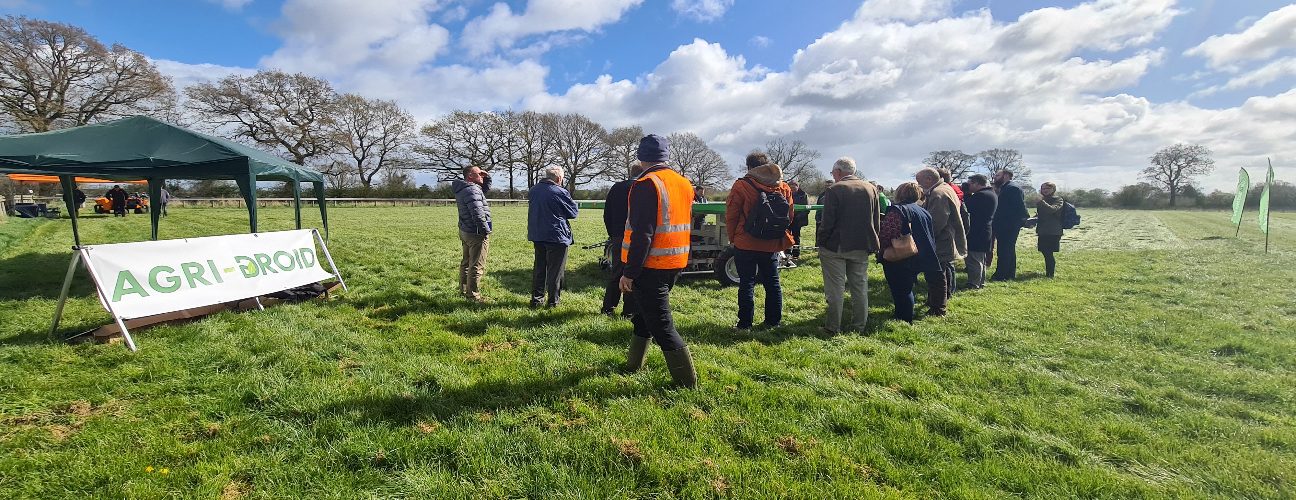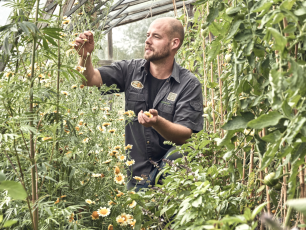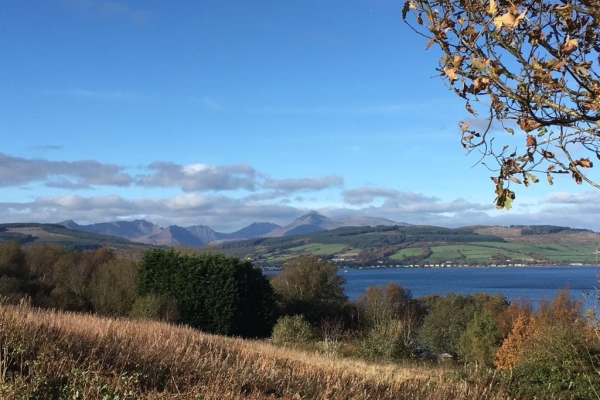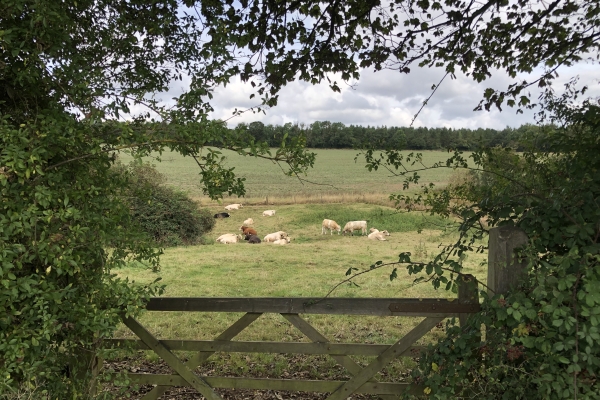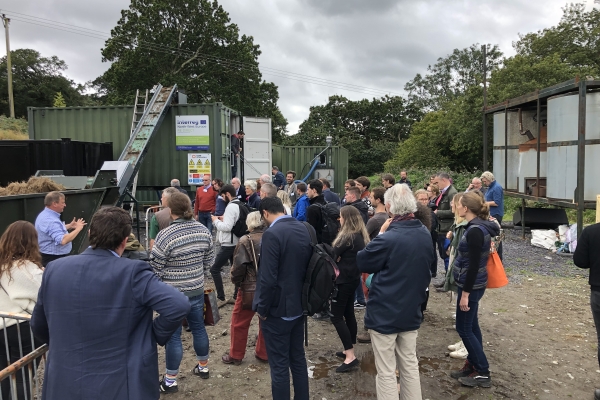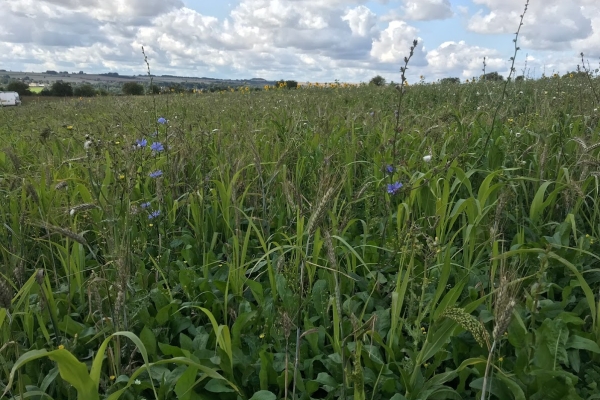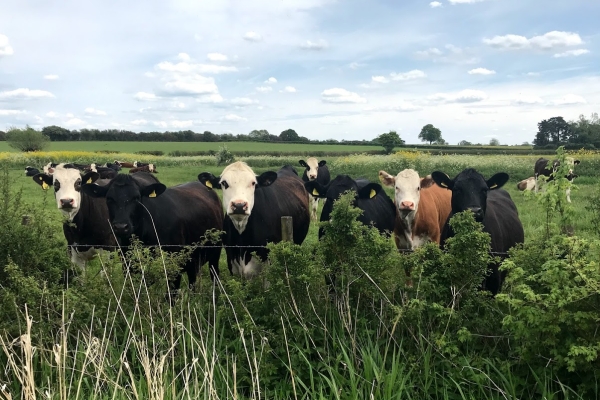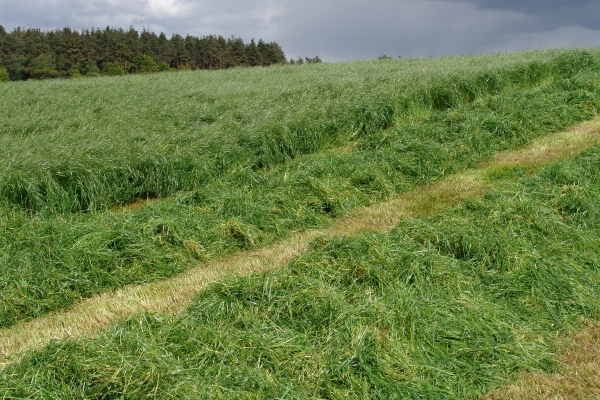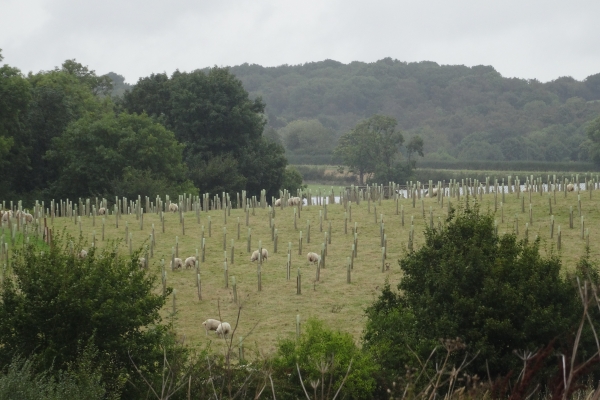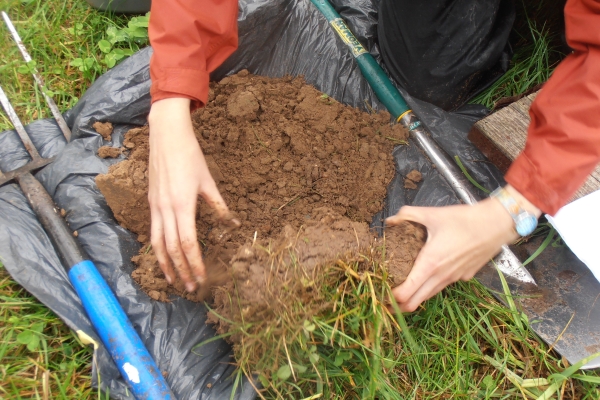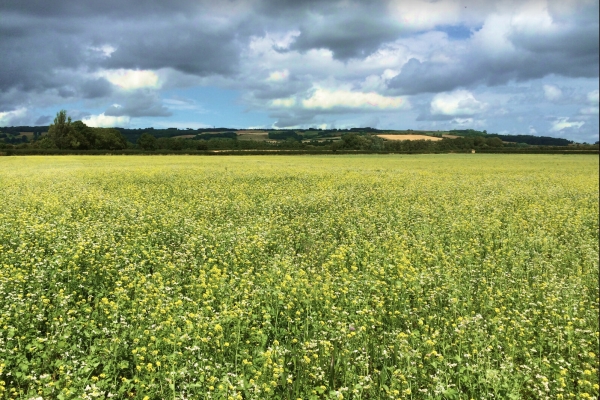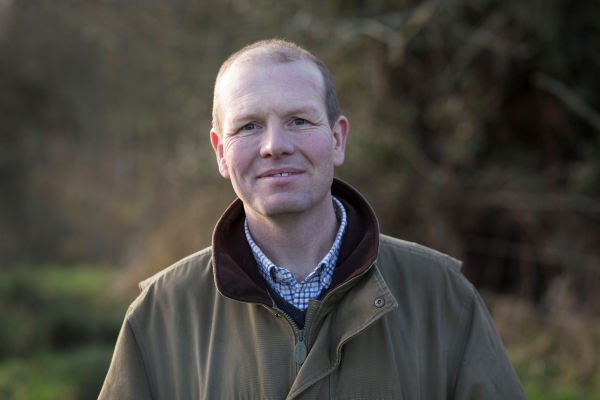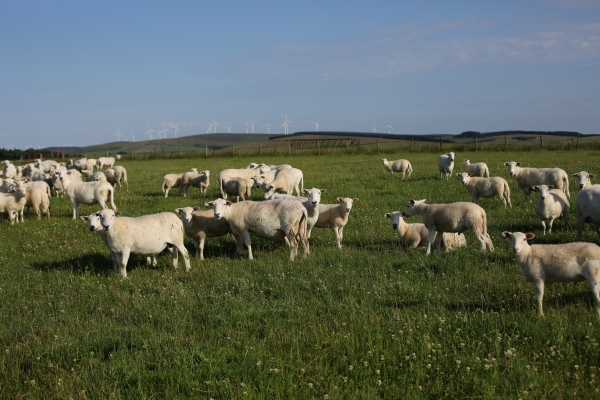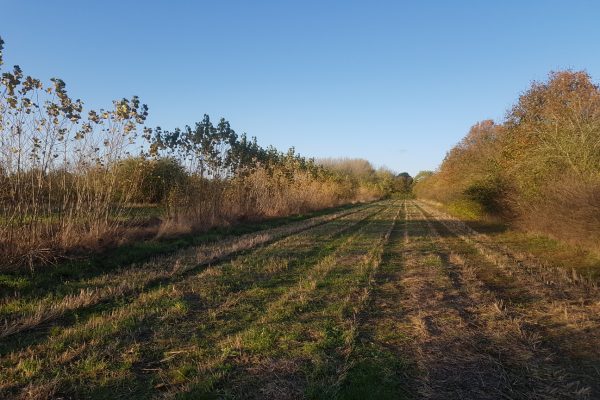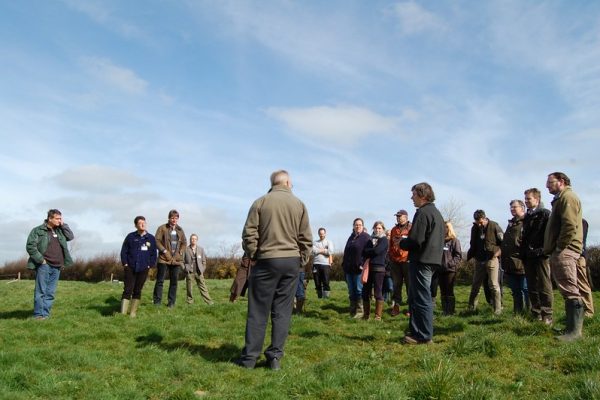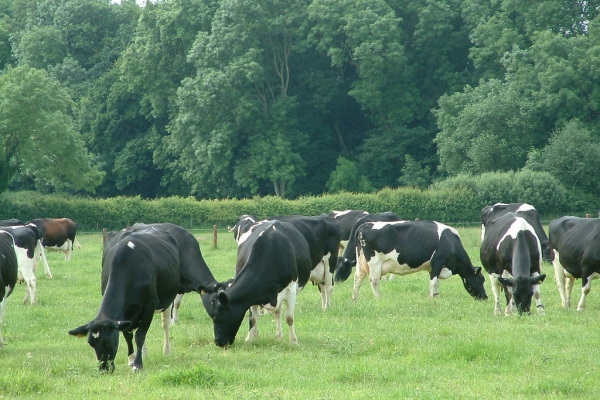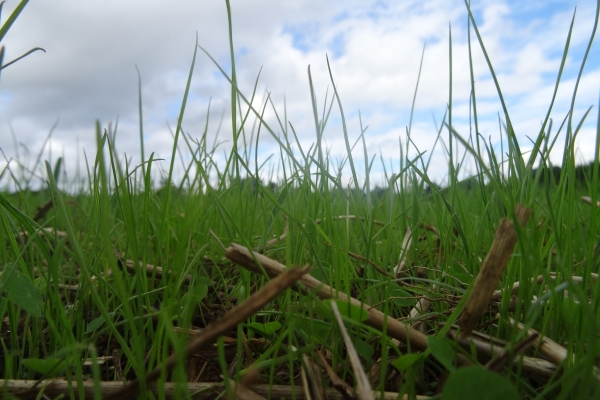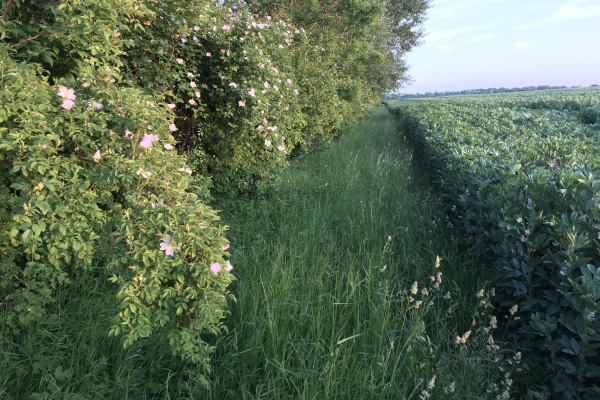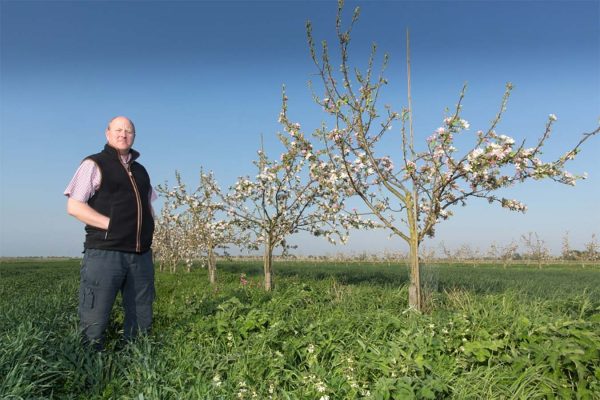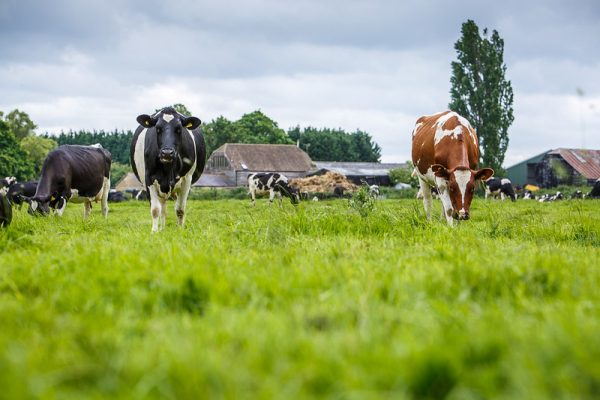Farm of the Future? Net Zero in Practice
On 13th April 2023 Harper Adams University hosted Farm of the Future: Net Zero in Practice, organised by the Royal Agricultural Society of England (RASE) and Innovation for Agriculture (IfA). The event was set up as a step towards a practical incarnation of RASE’s 2022 report: Farm of the Future: Journey to Net Zero. The day set out to illustrate the most recent thinking, technology, and research that would allow farmers to work towards net zero, decarbonise, and implement techniques that create circularity within their operations.
The event was very well attended with all tickets snapped up by expectant farmers, growers, and industry professionals. There was an evident hunger from the audience to listen to, learn from, and be involved in discussions that could help give clarity on the science behind net zero, provide new information to improve on-farm practices, and expand ideas for future planning.
The opening session featured interesting discussions and talks. Helen Browning highlighted the use of willow in the diets of her dairy cows, which can reduce methane emissions by up to 30%. Louise Manning suggested that “Farmers will decarbonise quickly if they are well supported by government” and that “farmers are not being given enough guidance as to what low carbon farming is.” Abi Reader spoke passionately about her love for, and understanding of, cows, and how this has led to adopting new farming techniques and approaches, including introducing agroforestry systems on to the farm. Abi is planting short coppice trees, lime, ash and willow, which will produce income in 2 to 5 years, and is looking at their potential use in low carbon alternative cements (incorporating biochar), which I’d never come across before and surely deserves to be researched further. She also touched on a fascinating project she is involved in which is introducing the energy crop Sida on to her farm. It comes from Poland and is described as being halfway between a sycamore and a maize plant. This huge sucker of carbon is a very high protein crop and is being billed as having some potential to replace soya as a high protein animal feed. We’ll be keeping an eye out for developments on this and reporting back to you all.
The session was rounded off with Stephen Briggs sharing his approach regarding enterprise stacking and integrating farming techniques such as agroforestry (read more about his approaches in his farmer profile). He highlighted that whilst much more complexity has been introduced into his management system, he is getting fantastic results (with significantly reduced inputs, greater profitability and much improved stewardship of the soil). His closing slide summed up his approach with great clarity:
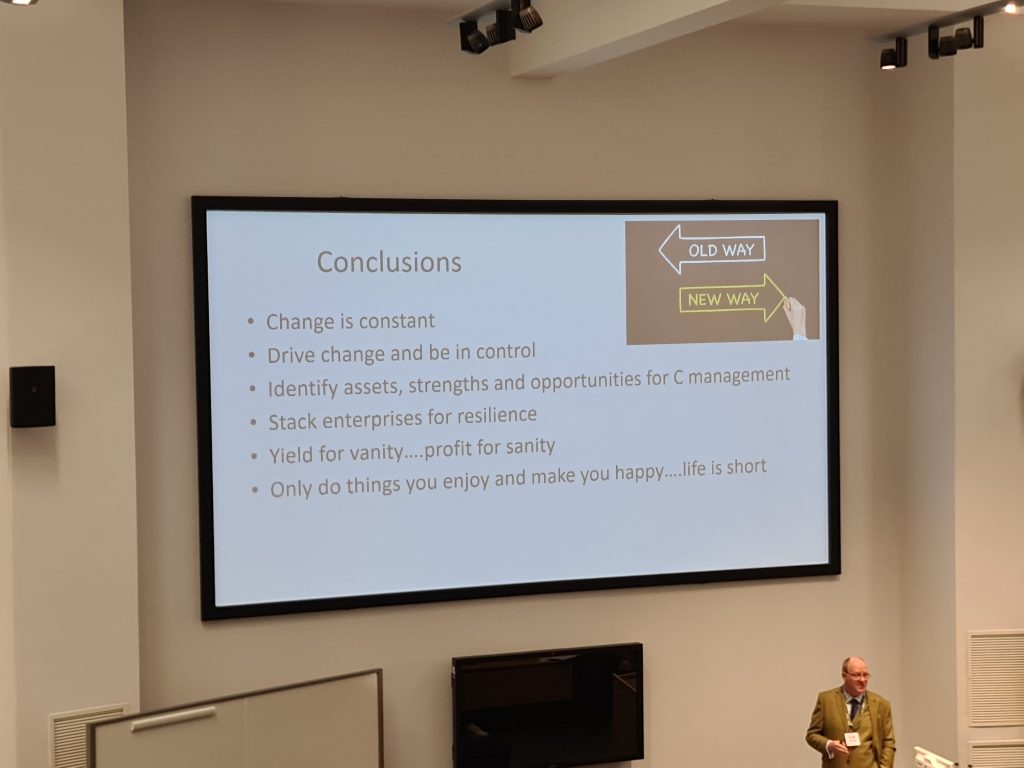
Lord Deben, Chair of the UK Climate Change Committee, gave a rousing and well received keynote address. He emphasised that “The central role of farming is to produce food. It can then be done in a way which enhances the environment. But it absolutely must start with food, and this is a vital element which must not be forgotten”… Further to this he criticised the current political structure that has “shown we are utterly unable to deliver on our climate pledges” and that “neither of our major parties have a practical detailed program of how we deal with climate change and how we help farmers contribute to change.” His address focused on the change required in the way we approach land use and the need to reduce the length of supply chains to improve food security. He championed farmers and called for more support from Defra that would allow them to do their job properly and help instill confidence to tackle the revolutionary changes that are required, emphasising the need for wider society to recognise the importance of farmers. He closed his address by quoting the words of Lord Cameron; “Britain was only ever nine meals away from anarchy.”
After the keynote speech, groups broke out into different technical sessions. ‘Autonomous vehicles and robotics’ saw the introduction of the work Kit Franklin and team have done through their hands-free hectare and the development of driver-less tractors. It will be interesting to see how their approach heading towards smaller electric vehicles which could operate as part of an autonomous fleet develops. When ability for whole system change becomes feasible, savings could be realised across the farm.
Farm Droid demonstrated their precision seeder and weeder, the FD20, which looks like something from a sci-fi film. It was explained how this has been used in the UK for growing sugar beet, with reported increase in yield from around 20t per hectare (ha) to 50t per ha. This was attributed to the efficiency of its weeding. One FD20 can weed 4-5 ha per day, operate day and night with 18-20 hours of run time, all powered by solar. It’s hard to know if we were watching the future or something for very specialised farms, with serious capital behind them.
The final demonstration was by the Small Robot Company, who explained how their Tom robot works as a scout to map and monitor fields for weed and pest detection, plant count, herbicide efficiency and emergence data. These robots are not operated by the farmer but by the company who come on-farm and run multiple robots at a time to collect the data, which they then feed back to the farmer.
The second technical session ‘decarbonising livestock production’ was billed as having a focus on breeding, feeding and health. After short talks by James Wright (Breeder), Anna Dinsdale (ABVista) and Robert Mallett, the group broke out in to separate session to discuss the topics further. Some ideas discussed were reducing dairy calf loss, genomic breeding, and feed alternatives to soya, the latter envoking a lot of questions within the group.
The final session of the day saw Flavian Obiero, Paul Westaway, Nigel Davis and Stephen Briggs come together to reflect on the day, discuss their highlights, and give some last pieces of advice. Paul Westaway was planning to explore options for small scale anaerobic digestion on his farm, Nigel Davis emphasised approaches the cereal sector can take to have an impact on climate change, and Stephen Briggs finished with advising everyone to “surround yourself with people who are on the same journey to make steps to change more straight forward.”
The day generated a lot of interesting content. The overall focus was heavily skewed towards technological solutions and the bottom line was in constant focus. It highlighted the confusion amongst the farming community on issues surrounding net zero and decarbonising, and frustration around the apparent lack of insight amongst the general populus into methane and livestock production. To sum the day up there were some potential answers, some potential solutions, and lots more work to be done.
